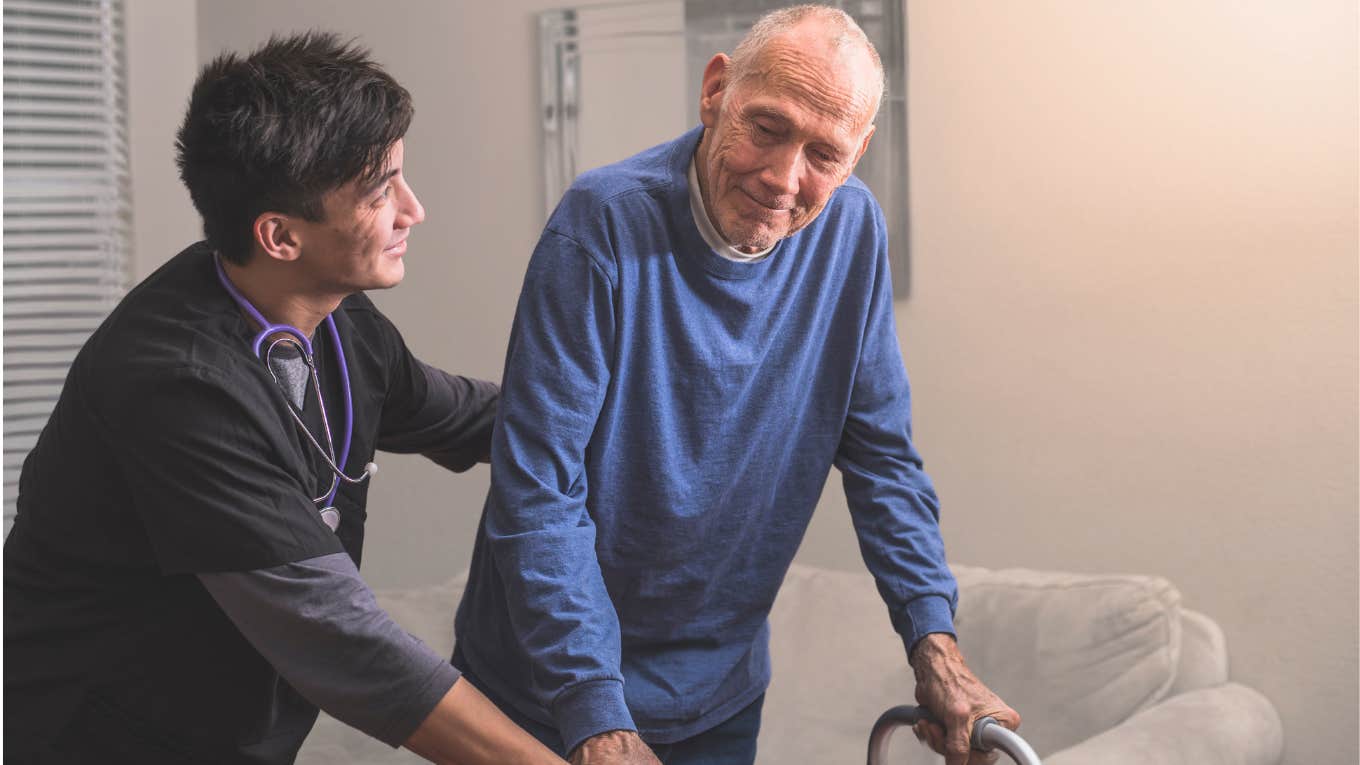Man Wonders If He's Wrong To Refuse To Help His Dying Father After Years Of Abuse
Comments reassure this man that he's not alone.
 LPETTET / CanvaPro
LPETTET / CanvaPro Childhood and familial trauma is almost impossible to navigate, even with the support of friends, professionals, and your community. After years of “closeness,” often to a fault, many adults with familial trauma seek distance from their toxic family members.
However, there are a number of things that can pull us back into the traumatic environment we once fled from, whether that be younger siblings, holidays, big family gatherings, or in this case, sick parents.
It’s exactly the kind of moral dilemma one man shared in a since-deleted post to the "TwoHotTakes" subreddit. After finally distancing himself from his abusive father, he received a call that had him contemplating a return home.
Although his absent and abusive father never took care of him as a child, the man is grappling with the guilt of refusing to care for his dad now that he's in hospice.
“I never had the best relationship with my father,” the man admitted. “Growing up, he was never engaged in my life. Never showed any desire to be in my life.”
Not only was his relationship inherently strained with his father, but his parent’s relationship also held a lot of weight over his head as a child. “[My father] cheated on my mom when I was younger which led to their separation,” he explained.
After his parents separated, the man’s childhood took a turn, resulting in an unstable and toxic relationship with his dad. He admitted he and his mother moved to another state, picking up their lives and leaving behind the memories and relationships they experienced with his father.
“Since [the separation], he never called me. I was guilted by my family to call him once a month. Even then, the conversation lasted no more than three minutes.” In the beginning, he recounted seeing his dad every few weekends — in which he’d sit in silence, alone in his home — but that quickly turned into a couple of times a year. “Even then, he wouldn’t engage with me,” he wrote.
With over a fourth of American children living with an absent father, his experience is sadly far from a unique one. But after years of battling with his own identity, emotions, and the impact of an absent father, he made the conscious decision to build his own life, as an individual, separate from his trauma.
Whether it means setting clear boundaries, going “no-contact,” or creating physical distance, adults with toxic parents often have to re-establish what that once-encompassing relationship looks like now.
“Life changed,” he wrote, “and I stopped visiting my home state. I had my own life and career, in a completely different location.” Just by creating physical distance, he was able to nurture the burden of his trauma — crafting a new career, life, and family based on his own standards of love.
After a few years of distance from his family, he was brought right back in with a call from his aunt, informing him that his father was sick in hospice.
When his aunt called him with the news that his father was sick, he couldn’t help but reopen the wounds of his childhood. He found himself conflicted between wanting to support the father figure he yearned for and seeking justice for the one who abandoned him.
“My aunt reached out because my mom is still technically married to him, but she doesn’t want anything to do with it,” he shared. After speaking with both of them, it became clear that neither was willing to re-enter his life to provide care or support — and justifiably so, in their eyes, as he never cared for them.
“He only has one friend that I know of,” he added. “My mom and aunt are now calling me, telling me I should be responsible for the finances of his hospice care. I refuse to do that.”
Despite being the root of his childhood trauma, his mom and aunt have continuously guilted him into ‘taking care’ of his father’s hospice finances.
“What’s most troubling is that my mom knows first-hand all the trauma my dad has given me … however she ignores these issues because she doesn’t want to deal with it herself,” the man wrote. Ultimately, he decided to keep his distance, not willing to sacrifice his own financial and emotional stability. After a few days, his mother reached out with the news of his passing.
“There’s a lot of mystery surrounding [his passing] and I’m not sure if I will ever get any clarification on it,” he added. “Ironically enough, I will never get any clarification on my father’s actions while alive… and I don’t know how to feel right now.”
The flurry of emotions he’s coping with are some that many adults experience when their abusive parents fall sick or pass away. On TikTok, Heather Zoccali, a writer and advocate, shared the story of her mother’s sickness and the journey of caring for her despite their tumultuous past.
After providing her mother with comfort amidst her illness, she was forced to experience her mother sharing happiness and empathy towards strangers — something she craved, but never received, as a child. “So I want you to know, anyone in this age bracket or someone who’s going through having to care for someone who was abusive to them, you’re not alone. I see you and I hear you.”
Despite the shared anger, frustration, disappointment, and even relief that comes with this experience, everyone's situation is unique. Make decisions that promote your well-being, get outside therapy or support, and ensure, above all else, that you’re giving yourself grace.
Zayda Slabbekoorn is a news and entertainment writer at YourTango focusing on pop culture analysis and human interest stories.

